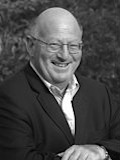GOTO Berlin is a vendor independent international software development conference with more that 60 top speaker and 400 attendees. The conference cover topics such as Java, Open Source, Agile, Architecture, Design, Web, Cloud, New Languages and Processes.
Dave Thomas, TweetFather of OTI, CEO of Bedarra Corporation

Biography: Dave Thomas
Dave Thomas has a wide spectrum of experience in the software industry as an engineer, professor, consultant, architect, executive and investor. Dave is founder and CEO of Bedarra Corporation; which provides virtual CTO and CEO, business mentoring and seed investment to emerging companies. Recently formed Bedarra Research Labs undertakes speculative research on applications of emerging software technologies.
Dave is best known as the founder and past CEO and president ofObject Technology International Inc. (formerly OTI, now IBM OTI Labs)and led the commercial introduction of object and component technology.The company is often cited as the ideal model of a software technologycompany.
He was also the principal visionary and architect for IBM VisualAgeSmalltalk and Java tools and virtual machines including the initialwork on popular multi-language Eclipse.org IDE. OTI pioneered the useof virtual machines in embedded systems with Tektronix shipping thefirst commercial products in 1988. He was instrumental in theestablishment of IBM's Pervasive computing efforts and in particularthe Java tooling.
Dave is an adjunct research professor at Carleton University, and the University Of Queensland and is widely published in the software engineering literature. He is a popular humorous albeit opinionated keynote speaker. Dave remains active in various roles within the technical community including ECOOP, AOSD, Evolve, and Agile Development Conference, Agile/XP Universe and OOPSLA Onward. He is a founding director of the Agile Alliance and most recently a founder of Open Augment Consortium. Dave writes expert columns in Otland Online in Germany, and the Journal Of Object Technology in Switzerland where he also serves on the editorial board.
Twitter: @daveathomas
Personal website:
davethomas.net
eclipse.org
agilealliance.org
Presentation: TweetLiving in Your Data
In this explore the past, present and future of array programming languages. They are one of the most expressive and productive languages yet remain relatively unknown.T hey are still used heavily in financial markets globally. Array developers made the first wide spread use of learning by katas and patterns, then called idioms, and including the now pervasive map reduce. The dynamic Array languages originated with APL followed by APL2, NIAL, J and k.
Often considered high barrier languages, we argue that they are much like a challenging instrument that when mastered allow to make amazing music with seeming little effort. We will also discuss why Vector programming is a natural low impedance approach for dealing with today’s high performance NoSQL and NewSQL column stores.
In the late 60s and early 70s Fortran, Lisp, COBOL, APL and Basic were the hot languages. Lisp, APL and later Basic pioneered the “the repl” of interactive computing. APL provides an efficient array/vector language for numeric computing. and found wide acceptance in financial, engineering and statistical computing. APL inspired – the Smalltalk environment; array extensions in other general languages such as Python NumPy and NamedTuple; F-Script for IOS Cocoa; special purpose languages such as MatLab and R; to recent proposed extensions for value types in Java; along with special purpose vector hardware like GPUs and recent Intel AVX instructions.
